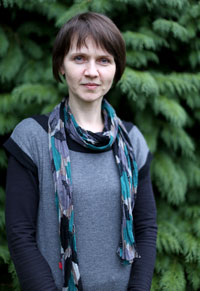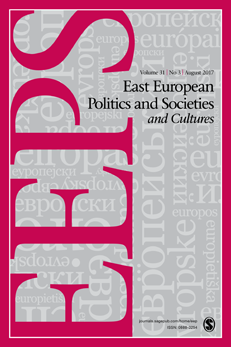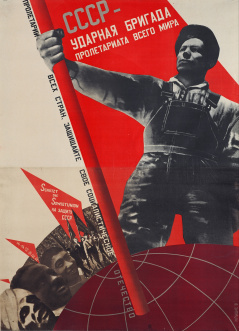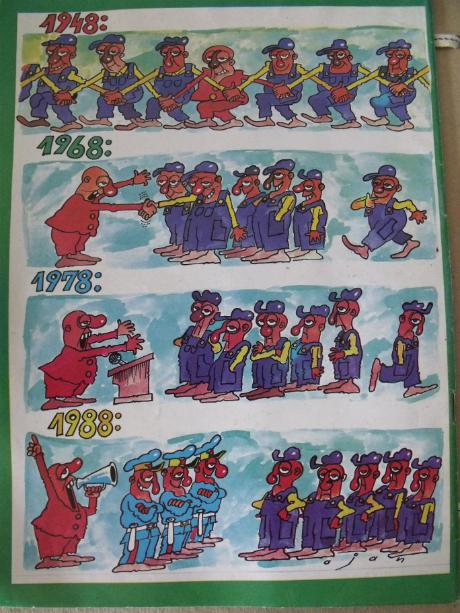New Chapter from Nelly Bekus: Historical Reckoning in Belarus
Posted on 5 March, 2018 inCommunism Eastern Europe International Criminal Law Post-Soviet Cities Socialism Soviet Union Transitional justice

 “Historical Reckoning in Belarus” is the latest chapter published by Dr Nelly Bekus. This forms part of the edited volume Transitional Justice and the Former Soviet Union: Reviewing the Past, Looking Toward the Future published by Cambridge University Press, February 2018. It is considered the most comprehensive account to date of post-Soviet efforts to address, distort, ignore, or recast the past through the use, manipulation, and obstruction of transitional justice measures and memory politics initiatives. Editors Cynthia M. Horne and Lavinia Stan have gathered contributions by top scholars in the field, allowing the disparate post-communist studies and transitional justice scholarly communities to come together and reflect on the past and its implications for the future of the region.
“Historical Reckoning in Belarus” is the latest chapter published by Dr Nelly Bekus. This forms part of the edited volume Transitional Justice and the Former Soviet Union: Reviewing the Past, Looking Toward the Future published by Cambridge University Press, February 2018. It is considered the most comprehensive account to date of post-Soviet efforts to address, distort, ignore, or recast the past through the use, manipulation, and obstruction of transitional justice measures and memory politics initiatives. Editors Cynthia M. Horne and Lavinia Stan have gathered contributions by top scholars in the field, allowing the disparate post-communist studies and transitional justice scholarly communities to come together and reflect on the past and its implications for the future of the region.
 Bekus’ chapter takes an alternative view to most scholars of post-communist transitional justice, who primarily consider the reckoning programs adopted by various former Soviet republics after they declared their independence in 1991. Instead she examines initiatives passed as a result of Mikhail Gorbachev’s glasnost and perestroika in 1987–91, measures introduced in 1990–4, and more recent
Bekus’ chapter takes an alternative view to most scholars of post-communist transitional justice, who primarily consider the reckoning programs adopted by various former Soviet republics after they declared their independence in 1991. Instead she examines initiatives passed as a result of Mikhail Gorbachev’s glasnost and perestroika in 1987–91, measures introduced in 1990–4, and more recent
efforts under Lukashenka. She also focuses on the transitional justice initiatives promoted by the Soviet and post-Soviet governments, as well as those proposed since 1991 by the opposition to Lukashenka, formed from the nationalist Belarusian People’s Front (BPF) and civil society organisations, such as the Association of Victims of Political Repression, the Saving Kurapaty organization, Memorial, and others.
→ Download the chapter: Historical Reckoning in Belarus
The “Children of Crisis”: Making Sense of (Post)socialism and the End of Yugoslavia
Posted on 24 July, 2017 in1989 1989 after 1989 End of Yugoslavia Generation Memory Post Socialism Socialism
 Ljubica Spaskovska’s article The “Children of Crisis”: Making Sense of (Post)socialism and the End of Yugoslavia has just been published in the Journal of East European Politics and Societies, Volume 31, Issue 3, August 2017. It forms part of a special section on the Genealogies of Memory, guest edited by Ferenc Laczó and Joanna Wawrzyniak.
Ljubica Spaskovska’s article The “Children of Crisis”: Making Sense of (Post)socialism and the End of Yugoslavia has just been published in the Journal of East European Politics and Societies, Volume 31, Issue 3, August 2017. It forms part of a special section on the Genealogies of Memory, guest edited by Ferenc Laczó and Joanna Wawrzyniak.
Ljubica’s article traces certain mnemonic patterns in the ways individuals who belonged to the late-socialist Yugoslav youth elite articulated their values in the wake of Yugoslavia’s demise and the ways they make sense of the Yugoslav socialist past and their generational role a quarter of a century later. It detects narratives of loss, betrayed hopes, and a general disillusionment with politics and the state of post-socialist democracy that appear to be particularly frequent in the testimonies of the media and cultural elites. They convey a sense of discontent with the state of post-Yugoslav democracy and with the politicians—some belonging to the same generation—who embraced conservative values and a semi-authoritarian political culture. The article argues that an emerging new authoritarianism and the very process of progressive disillusionment with post-socialist politics allowed for the emergence and articulation of such alternative, noninstitutionalized individual memories that, whilst not uncritical of the Yugoslav past, tend to highlight its positive aspects.
→ East European Politics and Socieities, Volume 31, Issue 3, August 2017
[Top]Human Rights after 1945 in the Socialist and Post-Socialist World Conference Programme
Posted on 29 February, 2016 in1989 1989 after 1989 Cold War Globalisation Human Rights Socialism

March 3-5, 2016
German Historical Institute Warsaw
Conference Room, 3rd Floor
Organizers:
German Historical Institute Warsaw
1989 after 1989: Rethinking the Fall of State Socialism in Global Perspective
Georg-August University of Göttingen
Synopsis
 As both human rights and globalization have emerged as dynamic fields of historical and sociological research, the “socialist world” is relegated to a supporting role in the triumph of Western capitalism and liberal democracy. The aim of this conference is to question established narratives that have ignored or downplayed the role of socialist ideas, practice, and experts—be they state officials, loyal intellectuals or dissident activists — in the development of international human rights ideas, discourses, and systems in the post-war era. With a geographic scope that covers the Soviet Union, the Eastern Bloc, Yugoslavia and China, we hope to show that the socialist world did not just react passively to Western human rights politics, but was a vital participant in the production of global human rights with legacies that continued past the revolutions of 1989. By examining the socialist contribution to the evolution of human rights, we hope to contribute to revising standard narratives of globalization that focus exclusively on the perceived winners of these processes.
As both human rights and globalization have emerged as dynamic fields of historical and sociological research, the “socialist world” is relegated to a supporting role in the triumph of Western capitalism and liberal democracy. The aim of this conference is to question established narratives that have ignored or downplayed the role of socialist ideas, practice, and experts—be they state officials, loyal intellectuals or dissident activists — in the development of international human rights ideas, discourses, and systems in the post-war era. With a geographic scope that covers the Soviet Union, the Eastern Bloc, Yugoslavia and China, we hope to show that the socialist world did not just react passively to Western human rights politics, but was a vital participant in the production of global human rights with legacies that continued past the revolutions of 1989. By examining the socialist contribution to the evolution of human rights, we hope to contribute to revising standard narratives of globalization that focus exclusively on the perceived winners of these processes.
Conference Programme
Thursday, 3 March 2016
14:00-14:30
Welcoming Address
Ruth LEISEROWITZ (German Historical Institute Warsaw)
14:30-15:30
Introductory Panel: State Socialism, Human Rights and Globalization: In Search of a New Narrative
Hella DIETZ (Georg-August University of Göttingen)
Ned RICHARDSON-LITTLE (University of Exeter)
Robert BRIER (London School of Economics)
15:30-16:00 Coffee break
16:00-18:00
Panel 1: Defining Human Rights Internationally
Steven JENSEN (Danish Institute for Human Rights)
Defining the Social in the Global: Social Rights, UN Diplomacy and the Emergence of International Non-Discrimination Norms and Politics, 1950-1960
Alexander OSIPOV (European Centre for Minority Issues)
The Soviet Union’s Involvement in the Establishment of the European Minority Rights Regime
Discussant: Arnd BAUERKÄMPER (Free University Berlin)
19:00 Conference Dinner
Friday, 4 March 2016
09:00-11:00
Panel 2: State-Socialist Conceptions of Rights and Human Rights
Jennifer ALTEHENGER (King’s College London)
Rights, Not Human Rights: Communist China’s National Constitution Discussion, 1954
Michal KOPEČEK (Institute for Contemporary History, Prague and Charles University, Prague)
Socialist Conceptions of Human Rights and its Dissident Critique
Todor HRISTOV (University of Sofia)
Rights to Weapons: Human Rights as a Resource in Workplace Conflicts in Late Socialist Bulgaria
Discussant: Paul BETTS (Oxford University)
11:00-11:30 Coffee Break
11:30-13:00
Panel 3: Tolerance, Difference, and Rights under Socialism
Ivan SABLIN (University of Heidelberg)
Illusive Tolerance: Buddhism in the Late Soviet State
Zhuoyi WEN (Hong Kong Institute of Education)
Contesting Cultural Rights in Post-socialist China
Discussant: tba
13:00-14:30 Lunch break
14:30-16:00
Panel 4: Human Rights as Socialist Foreign Policy
Sebastian GEHRIG (Oxford University)
The Fifth Column of the Third World? The East German Quest for International Recognition through UN Rights Discourses
Jens BOYSEN (German Historical Institute Warsaw)
Polish Engagement in the United Nations as a Tool for Justifying Communist Rule in Poland and Gaining Leeway in the Warsaw Pact
Discussant: Robert BRIER
(London School of Economics)
16:00-16:30 Coffee Break
16:30-18:00
Panel 5: Transnational Movements and Flows
Christie MIEDEMA (University of Amsterdam)
Negotiating Space for International Human Rights Activism: Amnesty International in Eastern Europe before 1989
Rósa MAGNÚSDÓTTIR (University of Aarhus)
Soviet-American Intermarriage: Transnational Love and the Cold War
Discussant: James MARK (University of Exeter)
19:00 Dinner for the conference participants
Saturday, 5 March 2016
9:00-11:00
Panel 6: Dissent and Human Rights
Simone BELLEZZA (University of Eastern Piedmont)
The Right to Be Different: Ukrainian Dissent and the Struggle Against a Global Consumerist Cultural Standardization
Hermann AUBIÉ (University of Turku)
Between Loyalty and Dissent: Revisiting the History of Human Rights in China Through the Discourse of Chinese Intellectuals and Dissidents
Zsófi a LÓRÁND (European University Institute, Florence)
Feminist Dissent, Activism for the Elimination of Violence against Women, and the Human Rights Discourse in Yugoslavia in the 1970s-1980s
Discussant: Celia DONERT (University of Liverpool)
11:00-11:30 Coffee Break
11:30-13:00
Concluding Panel: The Place of State Socialist Societies in the Global History of Human Rights
Paul BETTS (Oxford University)
James MARK (University of Exeter)
Celia DONERT (University of Liverpool)
Call for Journal Articles: 1956, Resistance and Cultural Opposition in East Central Europe
Posted on 12 January, 2016 in1989 Communism Eastern Europe Socialism
The deadline for submissions of abstracts for the 4th issue of Hungarian Historical Review on 1956, Resistance and Cultural Opposition in East Central Europe is fast approaching.
Abstracts of 500 words and a short biography listing the author’s five most important publications should be submitted by the January 15, 2016. Those selected will then be asked to submit their final articles no later than June 16, 2016, with the articles being published following a peer-review process. The call for journal articles can be found below:
Call for Journal Articles: 1956, Resistance and Cultural Opposition in East Central Europe
Since 1989, former socialist countries have been in the process of constructing and negotiating their relationships with their recent past, which includes their stories of resistance, revolts and cultural opposition. Opposition is typically understood in a narrow sense as referring to open political resistance to communist governments. We propose a more nuanced historical conception of resistance, opposition and revolts, expanding the concept towards broader frameworks of political participation in order to facilitate a better understanding of how dissent and criticism were possible in the former socialist regimes of Eastern Europe.
Since the authorities tried to control public spheres and there were no opportunities for democratic public debates, several critical movements (democratic, Church related or nationalist opposition) decided to establish underground public spheres and declared open opposition to the socialist state. However, several cultural groups with no open political program (e. g. avant-garde art, alternative religious communities, youth culture) were also regarded as forms of opposition and branded as such by the authorities, and, as a result, they were also forced underground.
Possible topics include:
– Individuals, institutions, groups and networks of cultural opposition;
– New perspectives of revolts (1956, 1968, 1981) against the Communist regimes;
– Members of the “hard-core” democratic opposition, who were banned during the socialist
period (including the world of samizdat publications, art movements, and non-official
lectures);
– Activities and networks of elite and intellectual groups of the opposition;
– Radical and experimental theatre;
– Underground and non-conformist youth and popular culture;
– Religious groups and institutions and their roles in the opposition;
– Cultural and scientific institutions, which implemented the research agenda of the opposition
(e.g. research on poverty in the communist regimes).
* Further information and guidance on submission can be found on the Hungarian Historical Review website.
[Top]The Future of the Past: Why the End of Yugoslavia is Still Important
Posted on 31 March, 2014 in1989 after 1989 End of Yugoslavia

By Ljubica Spaskovska
A new socialist model is emerging in the western Balkans. Can its political vocabulary transcend the ethno-national dividing lines in the region?
‘New project for democratic socialism in Yugoslavia’ read the title of the resolution for the last congress of the League of Communists of Yugoslavia. It was January 1990.
As the Yugoslav Party was writing the last pages of its seventy-year old existence, few were left who believed in the viability of the project of democratic socialism. ‘The liberal utopia which underpinned 1989’ was the idealized way the socialist East and South imagined ‘the West’ and liberal democracy. In the aftermath of the last Yugoslav party congress, even fewer could imagine that ‘democratic socialism’ could ever be resurrected as a viable political project.
Almost a quarter of a century later, however, the Slovenian ‘Initiative for democratic socialism’, the Democratic Labour Party and the Sustainable Development Party have announced the establishment of a ‘United Left’ coalition. These non-parliamentary leftist groups will present their bid for a new socialist model in Europe at the upcoming EU elections in May. While the recent wave of protests in Bosnia-Herzegovina, and on a smaller scale in Macedonia, have raised social concerns and acted as a vent for rebellion against the political and economic mismanagement by elites, Kosovan students at the University of Prishtina made a strong case against structural corruption and fraud, eventually succeeding in deposing the Rector.
Many of those who found themselves at the forefront of these ‘acts of citizenship’ have been young people who came of age in the post-socialist period. The Kosovan student protesters, the Macedonian activists for social justice in the leftist groups ‘Solidarity’ and ‘Lenka’, the organizers of the Zagreb Subversive Forum, and the activists in the Slovenian Initiative for democratic socialism, belong in a pool of activists groups, initiatives or centres for research that espouse progressive politics while they have sought to deconstruct the ‘liberal utopia’ of the post-socialist period. They are unquestionably part of a new political generation (or, a ‘generation unit’, to use Mannheim’s terminology) whose political subjectivities, demands and visions represent a departure from those that twenty-five years ago ushered in the post-Yugoslav era.
How to account for this sudden post-Yugoslav outburst of social discontent and the resurrection of a long-forgotten vocabulary, where social rights, democratic socialism, the working class and the dispossessed feature rather prominently? Beside the generational factor, one possible answers lies in the concluding paragraph of last month’s open letter to the international community signed by 130 scholars and academics from around the world:
“In [the] spring of 1992, Bosnian citizens staged in Sarajevo the largest demonstrations ever against all nationalist parties. They were silenced by snipers, and their voices, from that point on, ignored by the international community. This time, the world should listen.”
Indeed, the conventional narrative of the 1980s, as the climax of political skirmishing and ethnic hostility, has so far managed to conceal a major stream of critique that was silenced by the subsequent armed conflicts and progressively erased in the new nation-states. The last Yugoslav public opinion survey conducted in 1990, from a sample of 4,230 adults, revealed clear divisions along lines of ethno-national belonging.
However, there was one part of the survey where Yugoslav citizens appeared strikingly unanimous. Namely, respondents were asked if expenditures on education, culture, healthcare and social security should be reduced. 74% of Bosnians, 66% of Montenegrins, 81% of Croatians, 71% of Macedonians, 72% of Slovenes, 79% of Serbs, 80% of Kosovans and 84% of Vojvodinians said this budget should be either increased or the present level of spending should be maintained. Moreover, the survey found that the ‘democratic optimism’, i.e. a support for a multi-party system was highest among Kosovans and Slovenes (19%) and lowest in Bosnia-Herzegovina (4%). Indeed, respondents from ethnically-mixed regions expressed fears that a multi-party system would exacerbate inter-ethnic divisions.
One of the spheres where many of these debates took place during the 1980s was the Yugoslav press and, in particular, the so far scarcely researched youth press. A commitment to exposing socio-economic structural inequalities and forms of corruption, especially among top Party officials, came to define the increasingly vocal youth press that was subject as a result to ongoing bans, trials and public discrediting throughout the 1980s. This led foreign scholars to observe that:
“Of all the periodical publications appearing in Yugoslavia, it is the youth press which has proven the most consistently nettling to the authorities. Outspoken to the point of rebelliousness, the young editors […] have repeatedly ignored even the most fundamental taboos”.
Pedro Ramet, ‘The Yugoslav Press in Flux’, in Pedro Ramet (ed.) (1985), Yugoslavia in the 1980s, p.111
Young journalists tended to link these phenomena to the authoritarian traits of Yugoslav socialism, in particular the Party’s elites and their monopoly on power. In December 1984, for instance, the Croatian youth magazine Polet published an ironic call for the ‘Big, bigger, the biggest Yugoslav competition for the photograph of the most beautiful, richest, most luxurious and most unavailable house for the working class on the territory of the former Yugoslavia’, printed over a black and white photo of a big mansion. It also noted that ‘precedence will be given to the photographs which will also supply information about the location, the size, the owners and their occupation’. Four years later, the main Bosnian youth magazine Naši dani was at the helm of a big public debate which exposed the practice of building summer villas by high Bosnian political officials at the sea-side resort of Neum. One article unreservedly attacking high-ranking politicians put forward demands which could be heard in a modified form at recent protests: ‘To nationalise what had been robbed. To take away once and for all from the red bourgeoisie and give to the working class’. Finally, a similar affair burst into the open when Slovenian youth magazine Mladina accused the federal Minister of Defense of having a summer villa constructed for himself by army recruits in the sea resort of Opatija.
As the decade drew to a close and the Yugoslav sonderweg led many to believe that the multi-level crisis was a dead-end street and that violence was looming, many voices warned at the prospect of elites capitalizing on social discontent and posing as national saviours. Even regions like Macedonia, which were later spared from the violence of the dissolution conflicts, were mired in a new nationalist rhetoric and calls for prohibition of ethnic minorities’ political parties. The way the editor-in-chief of the youth magazine Mlad borec, Nikola Mladenov targeted the rise of nationalism in his editorials, both at Yugoslav and local level, captures this:
“As if it became a civic duty to propagate national tragedy and vulnerability. In place of one collectivity – the class, we are being offered another one – the nation, the easiest way of manipulating the emotions of tomorrow’s voters. The propagating of one’s one history – always the most bloody and most difficult – hasn’t bypassed us either […]”
For two and a half decades former Yugoslavs were repeatedly reminded of their national tragedies, bloody histories, or their victimhood at the hands of neighbours. They were encouraged, if not forced, to erase out of their memories and identities that other collectivity – the class. What the Bosnian student magazine Valter wrote in 1990 indeed reads like a prophecy:
“We should not have any doubts that this is a period where we’ll see a formal change of government, accompanied by strong disillusionment of manipulated voters. Because exclusive anti-communism does not imply automatic creativity; on the contrary, the motives are quite banal and easily recognisable – taking power.”
A generational shift, growing inequality, deterioration in living standards and the withering away of social rights have undoubtedly proved crucial for the emergence of a new political vocabulary and a range of demands which appear to neglect, if not transcend, the ethno-national frame. However, it remains to be seen whether the social(ist) utopia that underpins this shift is going to successfully restore some of the betrayed hopes of the late 1980s.
Bibliography:
George Lawson, Chris Armbruster and Michael Cox (eds.), The Global 1989: Continuity and Change in World Politics (Cambridge University Press, 2010).
Ljuljana Baćević, et al. Jugoslavija na kriznoj prekretnici (Beograd: Institut društvenih nauka/Centar za politikološka iztraživanja i javno mnenje, 1991).
Pedro Ramet, ‘The Yugoslav Press in Flux’, in Pedro Ramet (ed.), Yugoslavia in the 1980s (Westview Press, 1985), p.111.
‘Veliki, veći, najveći’, Polet 292, 21.12.1984, p.10.
Radmilo Milovanović, ‘Neum ili dolje crvena buržoazija’, Naši dani 949, 2.9.1988, p.7.
Nikola Mladenov, ‘Народе македонски’, Mlad borec 1971, 07.03.1990.
Goran Todorović, ‘Sveti Ante’, Valter 28, 17.4.1990, p.2.





